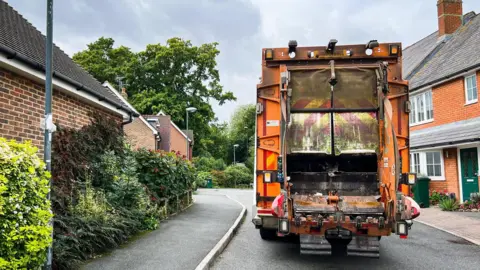Council's vehicles to be fuelled by vegetable oil
 Getty Images
Getty ImagesA council's vehicle fleet will be fuelled by leftover vegetable oil as part of a move to reduce carbon dioxide emissions in Derbyshire.
Bolsover District Council said its 130 vehicles would be run on hydrogenated vegetable oil (HVO), aiming to reduce greenhouse gas emissions by 90%.
Street sweepers, vans, bin lorries, tractors will be among the vehicles that will be powered by HVO.
The authority said the switch from diesel would result in a saving of 829 tonnes of carbon dioxide per year.
HVO is a renewable, diesel-like fuel made from vegetable oils, animal fats, or waste materials, the council said.
Steve Brunt, director of services at the council, said: "We have trialled the fuel and had no adverse effects and our vehicles are performing very well.
"We have looked at converting the entire fleet to fully electric, but the capital costs are currently prohibitive, and the local infrastructure isn't ready yet, so we have gone down the route of converting to HVO as we look to lower our carbon dioxide emissions."
The council said its fleet had been fuelled on 335,000 litres of diesel each year, producing the equivalent of 841 tonnes of carbon dioxide.
Follow BBC Derby on Facebook, on X, or on Instagram. Send your story ideas to [email protected] or via WhatsApp on 0808 100 2210.
